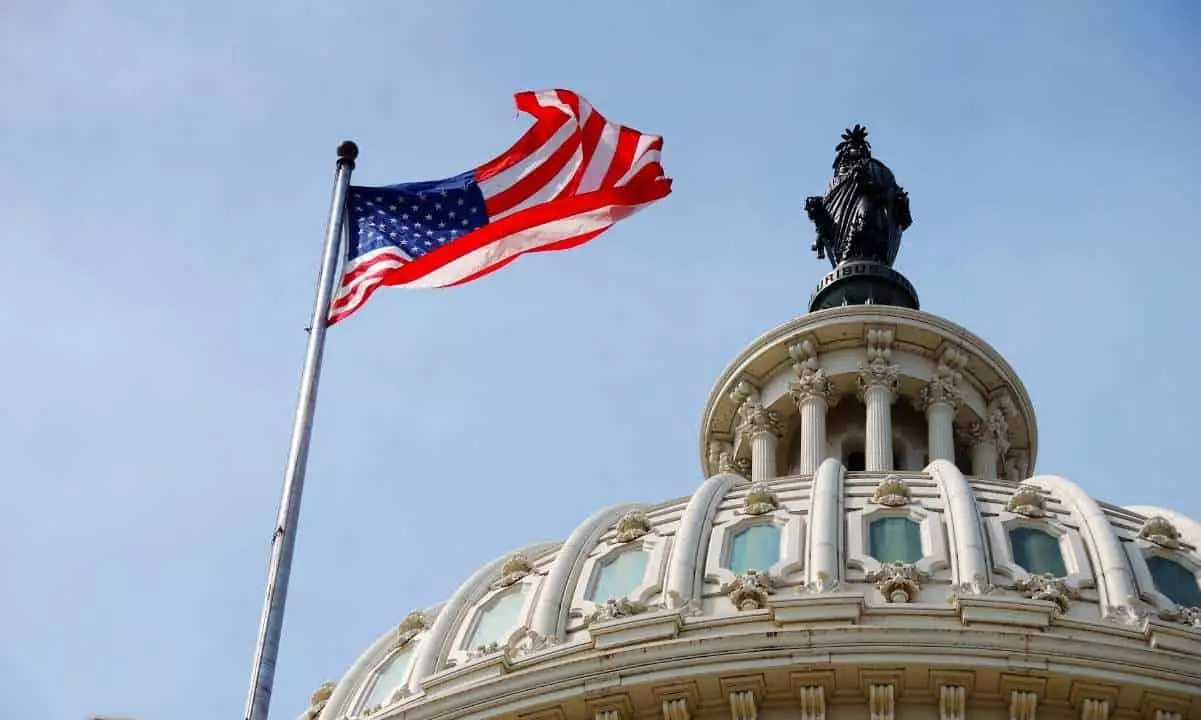In a notable shift towards the regulation of digital currencies, the U.S. Senate Banking Committee, under the guidance of Chairman Tim Scott, is moving to establish its inaugural subcommittee focused specifically on cryptocurrency. This initiative signifies a critical turning point in how legislative bodies are approaching the complexities and opportunities presented by digital assets. The announcement came via Fox Business reporter Eleanor Terret, revealing that Senator Cynthia Lummis, a prominent advocate for crypto legislation, is slated to lead this subcommittee, pending a vote for her confirmation.
The formation of this subcommittee aligns with the broader objectives of the Republican party, particularly in response to the growing influence of cryptocurrencies in the financial landscape. This move is not just tactical; it reflects the party’s efforts to engage with cutting-edge technologies that are shaping the future of finance. By honing in on such an important financial sector, the committee aims to foster a legislative environment that encourages innovation while ensuring consumer protections.
The structure of the new subcommittee is anticipated to draw inspiration from an existing entity in the House of Representatives, specifically the crypto-focused subcommittee established by Congressman Patrick McHenry in 2023 under the aegis of the House Financial Services Committee. The legislative momentum from the House is noteworthy, particularly with the passage of the Financial Innovation and Technology for the 21st Century Act (FIT21) in 2024. This piece of legislation has been pivotal in delineating the regulatory responsibilities of various agencies involved in overseeing the crypto space, marking a proactive step towards definitive regulatory frameworks.
The FIT21 act carries significant implications for securing consumer protections in the volatile crypto market. One of its central tenets, as highlighted by co-author Congressman French Hill, is the prohibition of commingling customer funds. This measure is designed to enhance the stability of the industry and aims to avert disasters akin to the FTX collapse, which sent shockwaves through the cryptocurrency community. Hill’s appointment as the new chair of the House Financial Services Committee is expected to bolster these efforts, emphasizing the GOP’s commitment to a comprehensive oversight strategy.
An internal memo from Chairman Scott delineates the Republican senators who will form part of this newly proposed subcommittee. Noteworthy figures include figures such as Bernie Moreno of Ohio, Dave McCormick of Pennsylvania, Thom Tillis of North Carolina, and Bill Hagerty of Tennessee. Each of these senators has demonstrated a robust advocacy for cryptocurrencies, portraying a unified front as they seek to navigate the legislative intricacies of the digital asset ecosystem.
Conversely, the inclusion of Democratic members remains ambiguous. The reluctance or potential opposition from figures like Elizabeth Warren, who has openly criticized cryptocurrencies, underscores the partisan divides that could influence the effectiveness of this committee. As both parties grapple with differing ideologies regarding the regulation of digital currencies, the subcommittee’s future dynamics will be closely watched.
The establishment of this subcommittee could not be more timely, coinciding with the Republican party’s ascendance to control in the Senate. The ramifications of President-elect Donald Trump’s upcoming inauguration on January 20 will further strengthen the GOP’s position across Congress and the White House. The political environment is ripe for advocating cryptocurrency legislation, which aligns seamlessly with Trump’s assertions regarding the U.S. as a potential global leader in the digital asset arena.
With the Senate now fully controlled by Republicans, there is an anticipatory buzz regarding the speed and scope of forthcoming crypto-related legislation. This new subcommittee is expected to lay the groundwork for robust discussions that can pave the way for actionable regulations, reflecting a commitment to regulatory clarity that has been sorely missing from the sector.
The creation of the Senate subcommittee dedicated to cryptocurrency illustrates a more organized and strategic approach to digital asset regulation in the U.S. This initiative indicates that lawmakers are not only acknowledging the increasing significance of cryptocurrencies but are also striving to establish a regulatory framework that balances innovation with necessary oversight. As these discussions progress, the outcomes will be significant, shaping the landscape for cryptocurrencies and their integration into the broader financial system. The road ahead is marked with challenges, yet it also promises opportunities for ensuring that the U.S. remains at the forefront of the global digital transformation.
















Leave a Reply